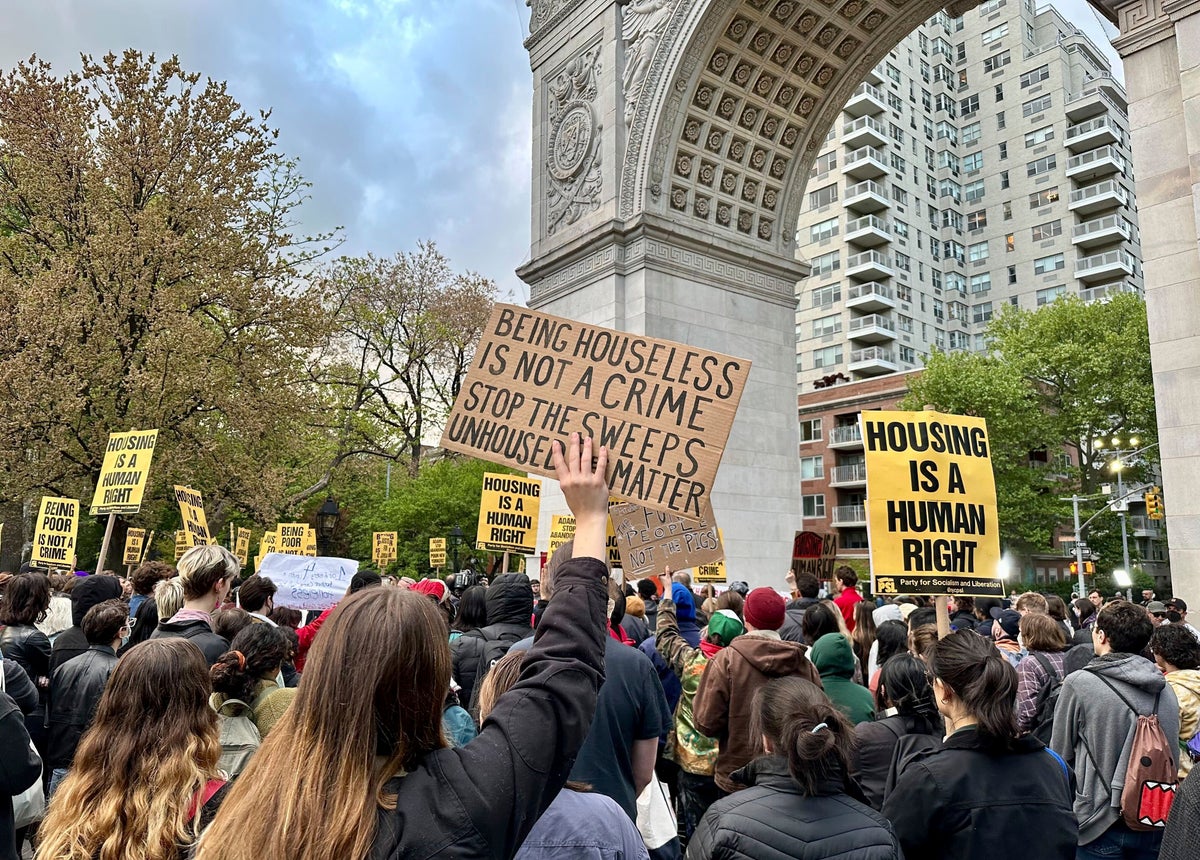
The man who was filmed with his arm wrapped around the neck of Jordan Neely on a New York City subway traincar will be criminally charged for his death and surrender to authorities as early as 12 May.
Daniel Penny, a 24-year-old former US Marine, will be charged with manslaughter in the second degree, according to the Manhattan District Attorney’s office. Prosecutors expect his arraignment in Manhattan Criminal Court on Friday, according to a statement shared with The Independent.
On 1 May, a man identified as Mr Penny placed the 30-year-old homeless former street performer in a fatal chokehold for several minutes until he died on the floor of an F train on the Broadway-Lafayette platform in Manhattan. The city’s medical examiner determined Neely’s cause of death was homicide.
Potential charges were first reported by ABC News and NBC News. Mr Penny’s attorneys did not immediately return a request for comment.
Neely – who was experiencing a mental health crisis in the days leading up to his death – was known among social work teams involved in outreach to New York’s homeless community. He had numerous interactions with law enforcement and health responders over the years.
When he walked into the F train on 1 May, Neely complained of hunger and thirst, according to witnesses and journalist Juan Alberto Vazquez, who posted a video of part of the incident on his Facebook page.
Mr Vazquez said Neely threw his jacket to the floor of the train car before another passenger grabbed him from behind in a headlock. Others grabbed at his arms. The widely shared video footage shows Mr Penny and two other men holding Neely to the floor of a train car for several minutes, while Mr Penny grabs Neely in a chokehold.
Another passenger can be heard in the video telling the men that his wife was in the military and warned them that placing Neely in a chokehold could kill him.
“You don’t have to catch a murder charge,” he said. “You got a hell of a chokehold, man.”
A statement from attorneys for Mr Penny on 5 May said Mr Penny “was involved in a tragic incident ... which ended in the death of Jordan Neely.”
“When Mr Neely began aggressively threatening Daniel Penny and the other passengers, Daniel, with the help of others, acted to protect themselves, until help arrived. Daniel never intended to harm Mr Neely and could not have foreseen his untimely death,” according to the statement.
Attorneys for Neely’s family said the statement from Mr Penny’s legal team was neither “an apology nor an expression of regret” but “character assassination and a clear example of why he believed he was entitled to take Jordan’s life.”
Neely’s death has sparked widespread demands for support for homeless and mentally ill New Yorkers, as advocates and lawmakers condemned what they characterised as an act of vigilantism in a city that has marginalised and targeted its most vulnerable residents with violence.
Within the week after his death, NYPD officers have arrested at least 24 people – including a photojournalist, targeted by a high-ranking police official – at protests and vigils demanding an arrest.
In his remarks on 10 May, more than one week after Neely’s death, Mayor Eric Adams did not mention how Neely died or discuss the events surrounding his death, but issued his strongest statements yet in the wake of the incident, in contrast to his initial remarks in its aftermath.
“Jordan Neely did not deserve to die,” he said. “A New Yorker who struggled with tragedy, trauma and mental illness, a man whose last words were crying for help.”
Mr Adams outlined his administration’s response to people experiencing homelessness and mental health distress, including legislation proposed to lawmakers in Albany, the creation of outreach teams, and a controversial policy that allows authorities to involuntarily hospitalise people who are considered too mentally ill to care for themselves.







